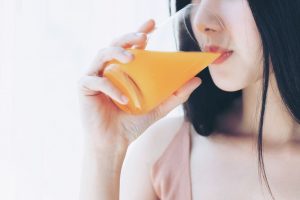Postpartum period is the period after delivery up to 6-8 weeks afterwards, marked with vaginal bleeding. This is a watchful period and usually has many restrictions in order to maintain the health of the mother and baby. The fact is that the highest death rate occurred in the first 24 hours.
The period is also vulnerable because the mother experiences changes physiologically, emotionally, and socially. In addition to coping with competing demands of motherhood, work, and family commitments, many Asian women practice confinement and need to observe a set of traditional customs and practices to assist them to recover from pregnancy and childbirth. For example, a special diet is taken to improve personal health and promote milk supply. There are restrictions on personal hygiene such as no bathing or bathing with herbal preparations. Women also rest at home and avoid strenuous physical activities to regain their strength and prevent future illness.
Diet has been shown to be an important component of confinement practices. Consumption of certain foods is believed to promote or restore health, while other foods are avoided as they are thought to cause illness either immediately or in the future. Fish and eggs are suggested to be avoided in order to hasten the wound recovery process. But, is it true?
Fish and eggs actually provide good source of protein which are very crucial for the recovery period after birth and supports breastfeeding. Fish is rich in protein and omega 3. Choose fresh fish and avoid mercury contaminated fish. In Indonesia, there are a large variety of fish and fish-based meals.
Eggs on the other hand is filled with nutrients important for the baby and mother which also can be found easily in various markets. The main concern are allergy symptoms if the mother or baby has fish or egg allergy.
Aside from allergy, consuming high protein diet is recommended especially for new mothers. Therefore, dietary warnings during confinement must be accepted wisely. Choosing a well-balanced healthy diet will be best for the mother and newborn baby.
Source:
- https://bmcpregnancychildbirth.biomedcentral.com/articles/10.1186/s12884-021-04089-6
- https://www.ncbi.nlm.nih.gov/pmc/articles/PMC4992357/



